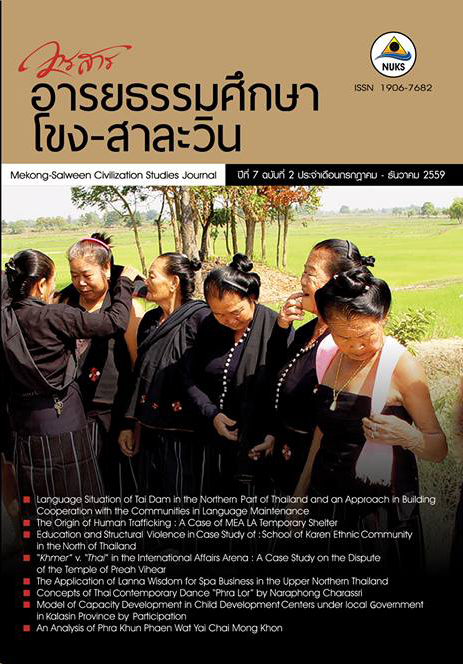Language Situation of Tai Dam in the Northern Part of Thailand and an Approach in Building Cooperation with the Communities in Language Maintenance
Main Article Content
บทคัดย่อ
This research article aims to present the study of language situation
of the Tai Dam ethic group in the lower northern part of Thailand and an
approach in building cooperation with the communities in language
maintenance. Research data had been collected from all 9 provinces in the
lower northern part by surveying, observing, participating and interviewing.
The results show that there are at least 145 Tai Dam villages located in seven
provinces. The Tai Dam people in this region still speak their own language
and strongly maintain traditional practices. This ethnic group speaks Tai
Dam and doing cultural practices in opportunites such as daily life, social
events, social club meetings and social media. They have the positive attitude
toward and even are proud of their own language & culture. Importantly, the
Tai Dam people themselves have been efficiently preserving their language
& culture with principles such as “performing to be watched”, “living to be
seen” and “training to be able to”, including strategies such as “behaving”,
“demonstrating”, “teaching & training”, “holding”, “building”, “campaigning”,
“publicizing” and “studying”. Therefore, an approach in making cooperation
with the Tai Dam communities in language & culture maintenance could be
achieved by supporting and enhancing their current ways as such.


